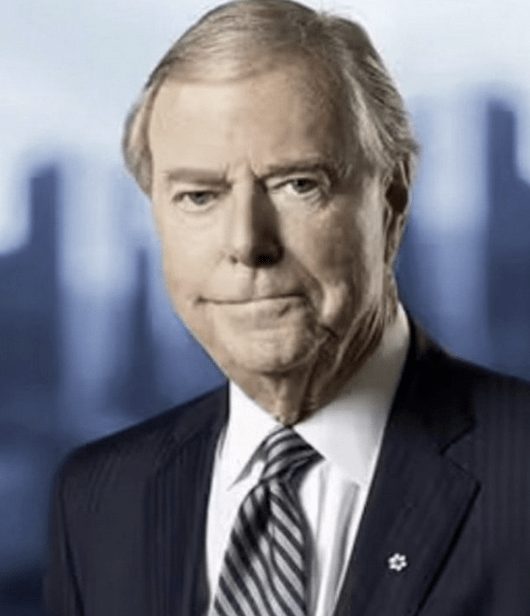Freeland’s Bombshell

By Don Newman
December 16, 2024
With Dominic Leblanc sworn-in as finance minister just as the Trudeau government’s Fall Economic Statement was being tabled in the House of Commons, Monday was indeed a day of political and economic precedents.
The fiscal update, a policy document assembled over months by the Department of Finance under Finance Minister Chrystia Freeland, includes more than $24 billion in new spending over five years and a deficit of $61.9 billion, ballooned in part due to one-time expenditures of $16.4 billion related to the court-ordered settling of Indigenous claims and $4.7 billion related to the COVID-19 pandemic.
The unusual sequence of events and stunning, last-minute change in dramatis personae on such a fiscally crucial day began with a 9:00 a.m. bombshell.
On the day she was supposed to deliver the FES the Liberals hoped would ignite their comeback leading into an election year, Chrystia Freeland instead departed the federal cabinet by declining to accept a post as minister-without-portfolio for Canada US relations — reportedly to make room for Mark Carney at Finance — and fired a political broadside at the waterline into the already listing ship that is the Trudeau government.
In doing so, Freeland ripped the Band-Aid off a festering conflict between herself and the prime minister over fiscal policy and government spending. Instead of yet another attempt to revive Liberal fortunes, she has triggered the latest blow to a government that is already 20 points behind in the public opinion polls and seems to have no viable path to recovery.
Freeland will continue to sit in Parliament as a Toronto MP and plans to run again in the next election, which has to be held no later than next October. The crisis she has unleashed could change both the timing of, and the participants in, the election, including via the possibility of her own bid for the Liberal leadership.
That’s the domestic politics first-read of Freeland’s bombshell. In broader terms, her departure leaves an immediate, major hole in the Trudeau government’s strategy for battling Donald Trump’s threat of 25% tariffs, to say nothing of the looming CUSMA renegotiation.
Which puts Justin Trudeau on shakier ground than at any point in his tenure. More than 20 MPs have already publicly called for him to resign. And many more privately want him to go. So far, he has faced down these demands but the departure of his minister of Finance and deputy prime minister, her scathing letter and the dramatic way she delivered it, may be the coup de grâce. As Dominic Leblanc has now been sworn in as her replacement at Finance (while retaining his Intergovernmental Affairs title), it seems Trudeau certainly isn’t intending to resign this week.
The crisis she has unleashed by resigning could change both the timing of, and the participants in, the election, including via the possibility of her own bid for the Liberal leadership.
There have been high-profile ministerial departures before. Jody Wilson-Raybould left the cabinet rather than be demoted from Justice to Veterans Affairs over a dispute about leniency for SNC-Lavalin. Her cabinet colleague, Jane Philpott, resigned in support of Wilson-Raybould.
In May 1990, Lucien Bouchard resigned from the Progressive Conservative Government of Prime Minister Brian Mulroney over what he felt was a watering down of the Meech Lake Accord designed to get the Province of Quebec to formally sign onto the Canadian Constitution. His resignation had far-reaching effects than are still being felt. He left and formed the Bloc Québécois, which still elects separatist MPs to the House of Commons and has thirty-three Members in the current Parliament.
Perhaps the most applicable precedent is found in the 1963 resignation of three cabinet minister from the Progressive Conservative Government of John Diefenbaker. Diefenbaker had led the Conservatives to a minority government the year before after four years earlier winning the largest-ever House of Commons majority.
During the four years of his majority, Diefenbaker ended up in a feud with U.S. President John F. Kennedy. He refused to put the Canadian military on alert at the beginning of the Cuban Missile crisis when the Soviets put missiles ninety miles from the United States. A year later, he reneged on a promise to the Americans to put nuclear warheads on Bomarc missiles the government had bought from the United States as part of the North American Air Defence alliance.
His Defence minister, Douglas Harkness, Associate Minister Defence Minister Pierre Sévigny and Trade and Commerce Minister George Hees, all resigned in protest. They all left politics, although Hees after returned as a Cabinet Minister in the 1980s.
Soon, there will be a cabinet shuffle to replace other cabinet ministers who will not be running in the next election. Whatever happens, the changing cabinet roles will resemble “shuffling the deck chairs on the Titanic.” For historical reference, the captain of the Titanic was a man named Edward Smith. He went down with the ship.
Contributing Writer and columnist Don Newman, an Officer of the Order of Canada and lifetime member of the Parliamentary Press Gallery, is Executive Vice President of Rubicon Strategy, based in Ottawa.
